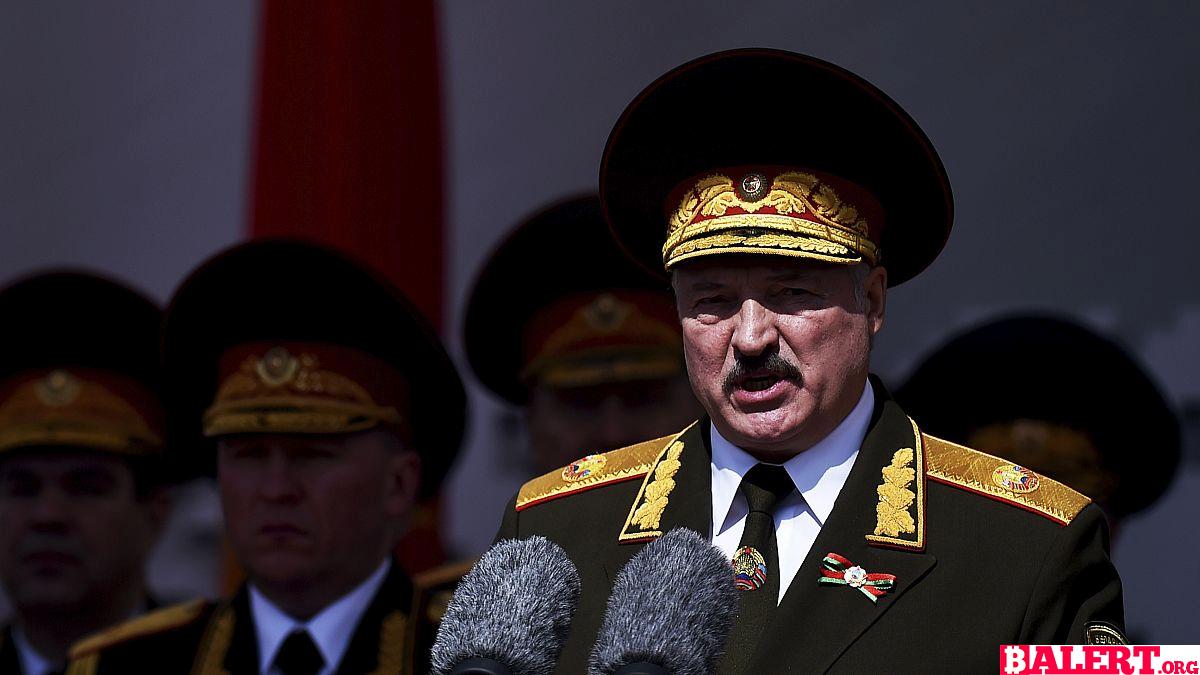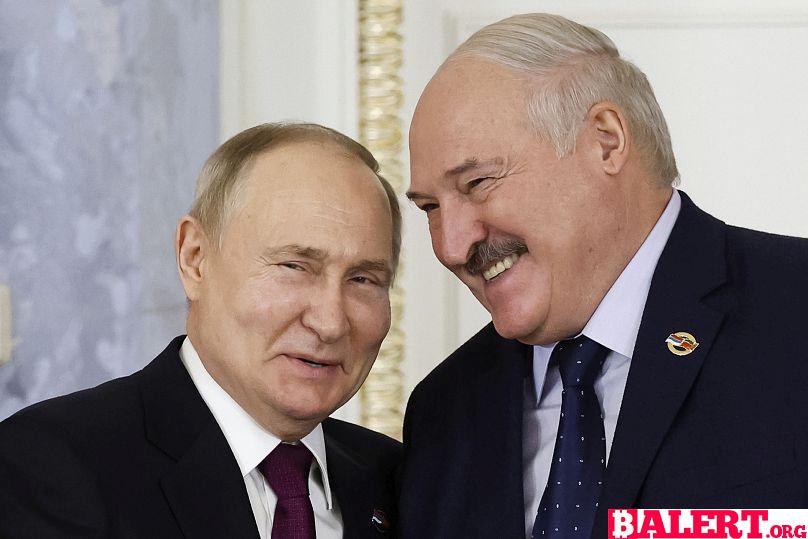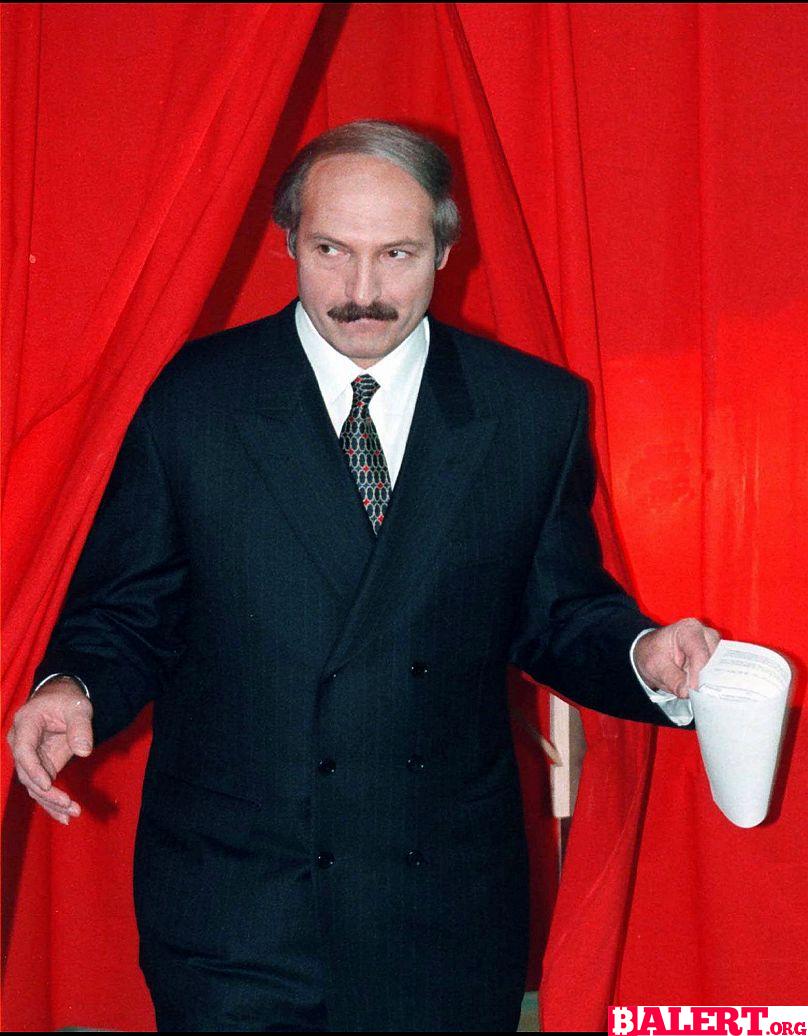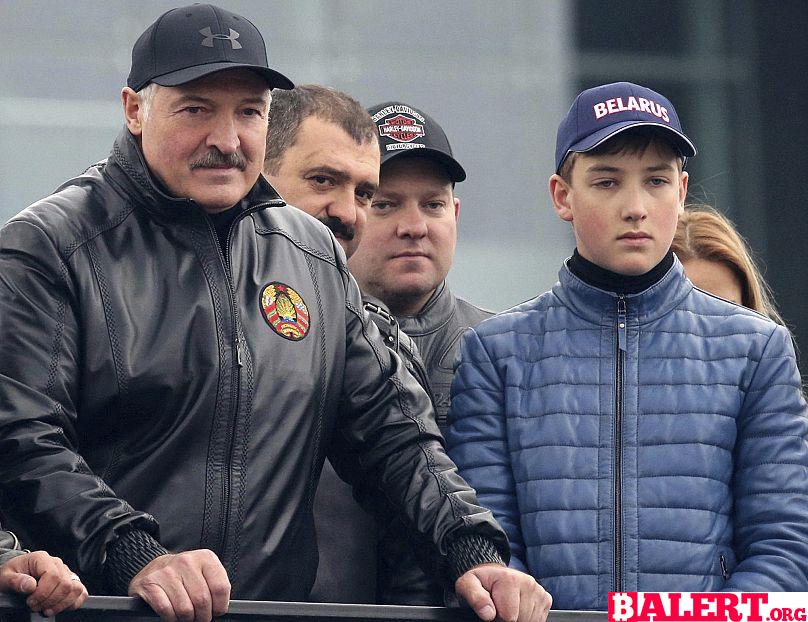World
Alexander Lukashenko: A Three-Decade Dictatorship in Belarus
Explore the enduring rule of Alexander Lukashenko in Belarus, a three-decade dictatorship marked by repression, political turmoil, and international isolation. Understand the impact of his leadership on Belarusian society and global politics.

Alexander Lukashenko: Three Decades of Unwavering Power in Belarus

On Saturday, Alexander Lukashenko, the steadfast ruler of Belarus, commemorated his 30 years in power. Throughout this period, European leaders have cycled through various roles, yet Lukashenko has remained a constant presence, maintaining his grip on the nation by silencing dissent, imposing Soviet-style economic controls, and forming a close alliance with Russia. At times, he has even flirted with Western engagement.
At 69, Lukashenko has garnered the infamous title of “Europe’s last dictator” early in his tenure, a moniker he has lived up to consistently. As the leader of a nation straddling Russia, Ukraine, and NATO member states like Poland, Lithuania, and Latvia, Lukashenko was re-elected for a sixth term in 2020. This election was widely condemned both domestically and internationally as fraudulent, with reports suggesting he garnered over 80% of the votes.
The election results sparked months of widespread protests, which were met with severe repression. A violent crackdown ensued, resulting in the incarceration of tens of thousands and numerous allegations of torture and beatings. Many political opponents remain imprisoned, while others have fled the country of 9.5 million. Despite facing Western sanctions and international isolation, Lukashenko remains unyielding, announcing plans to run for a seventh five-year term in the upcoming elections.

Russia: The Unwavering Support
Lukashenko’s prolonged political survival can be attributed to a combination of political cunning, brutality, and steadfast support from Russia. Most notably, in 2022, he permitted Moscow to utilize Belarusian territory for its invasion of Ukraine and subsequently agreed to host a portion of Russia’s tactical nuclear arsenal.
Valery Karbalevich, an independent political analyst, asserts, “Lukashenko has transformed Belarus into a remnant of the USSR, posing dangers not only to its own citizens but also threatening its Western neighbors with nuclear capabilities.” He characterizes Lukashenko as “one of the most seasoned post-Soviet politicians, adept at navigating the Kremlin’s sentiments while addressing the fears of his own populace.”
Rise to Power on Anti-Corruption Promises
Prior to his presidency, Lukashenko served as the head of an anti-corruption committee, where he made serious allegations against senior government officials and advocated for democratic elections. His political journey began when he was elected in July 1994, just two and a half years after Belarus achieved independence. He pledged to combat corruption and improve living standards that had plummeted amidst chaotic free-market reforms.

Demonstrating his admiration for the Soviet Union, Lukashenko quickly sought to alter the national flag through a referendum, reverting to a design reminiscent of the Soviet era. He also strengthened ties with Russia, advocating for the establishment of a new union state, likely with aspirations of leading it following a full merger.
Continued Use of Capital Punishment
Under Lukashenko’s regime, Belarus retained its Soviet-era KGB nomenclature for its top security agency and remains the only nation in Europe to practice capital punishment, executing individuals with a bullet to the back of the head. In the late 1990s, four prominent critics of Lukashenko mysteriously disappeared, with a Council of Europe investigation concluding that they were kidnapped and murdered by death squads linked to high-ranking Belarusian officials. The Belarusian government has consistently obstructed European efforts to investigate and prosecute the suspects.
Anatoly Lebedko, the leader of the now-outlawed United Civil Party of Belarus, remarked, “Lukashenko never cared about his reputation. He takes pride in identifying himself as a dictator and has boasted about being a pariah, even while facing public accusations of political killings and other serious crimes.”
Lukashenko often keeps his youngest son, 19-year-old Nikolai, close at official engagements, leading to speculation about grooming him as a potential successor. He cultivates a tough-guy image through sports such as hockey and skiing, claiming that his vigorous physical activity helped him recover quickly from COVID-19. However, in recent years, he has appeared less energetic, fueling rumors regarding his health, which he vehemently denies.
“I’m not going to die,” he declared last year. “You will have to endure my presence for quite a while.”
World
Dominique Pelicot Testifies in Harrowing Rape Trial
Join us as Dominique Pelicot courageously testifies in a harrowing rape trial, shedding light on the complexities of trauma and justice. Her powerful story raises crucial questions about the legal system and the importance of support for survivors.

Dominique Pelicot Takes the Stand in Shocking Rape Trial
In a courtroom drama that has captivated France and garnered international attention, Dominique Pelicot, the man at the center of a harrowing rape trial, finally addressed the court. With tears streaming down his face, he recounted how his wife had been instrumental in helping him cope with a tumultuous past marked by trauma. He revealed that he had endured a sexual assault at the tender age of nine while hospitalized, and he also witnessed a gang rape during his teenage years while working as an apprentice electrician on a construction site.
“She didn’t deserve this, I acknowledge that,” Mr. Pelicot stated, his voice barely audible as he struggled to convey his emotions. The gravity of the situation weighed heavily on him, and the courtroom fell silent, straining to catch his every word.
Now 71 years old, Mr. Pelicot faces serious allegations of drugging his wife, Gisèle Pelicot, whom he has been married to for half a century, over a span of nearly ten years. Prosecutors contend that he used drugs to render her comatose, allowing him to rape her repeatedly. Furthermore, authorities allege that he went so far as to invite numerous men into their home, facilitating a nightmarish scenario where they, too, engaged in the assault of his wife.
Overall, 51 men, including Mr. Pelicot, are on trial concurrently, primarily facing charges related to the aggravated rape of Ms. Pelicot. Among them, one individual has already pleaded guilty to similar crimes, admitting to drugging his own wife to assault her and inviting Mr. Pelicot to partake in the horrific act while she was incapacitated.
Mr. Pelicot’s unexpected testimony came after a tumultuous start to the trial. Just a week in, he was stricken with severe health issues that forced him to miss four consecutive days in court. The head judge ultimately decided to postpone proceedings, as Mr. Pelicot was diagnosed with kidney stones, a kidney infection, and prostate complications, adding yet another layer of complexity to this already harrowing case.
World
Meta Bans Russian State Media Outlets from Social Media Platforms
Explore the implications of Meta’s decision to ban Russian state media outlets from its social media platforms. Understand the impact on information dissemination and the ongoing battle against misinformation in the digital landscape.

Meta Imposes Global Ban on Russian State Media Outlets
In a significant move, Meta Platforms, Inc., the parent company of Facebook, has announced the prohibition of Russian state media outlets, including RT (Russia Today) and Rossiya Segodnya, from all its social media platforms. The decision stems from the company’s concerns regarding the deceptive strategies employed by these media organizations to execute covert influence operations across the internet.
Meta made this announcement on Monday, emphasizing that the ban will be enforced worldwide across its various platforms, such as Instagram, WhatsApp, and Threads. The rollout of this ban is expected to take place over the coming days.
Statement from Meta
A spokesperson for Meta elaborated on the decision, stating, “After careful consideration, we have expanded our ongoing enforcement actions against Russian state media outlets. As a result, Rossiya Segodnya, RT, and other affiliated entities are now banned from our applications globally due to their involvement in foreign interference activities.”
For further insights into this development, watch the video in the player above.
World
Trump Recalls Alleged Assassination Attempt While Golfing
Explore Donald Trump’s chilling recollection of an alleged assassination attempt he experienced while enjoying a round of golf. Delve into the tense moments and his reflections on safety, fame, and the unpredictability of public life.

In a recent interview on the social media platform X, Republican presidential nominee Donald Trump recounted a harrowing incident he claims to have experienced while playing golf. Trump described how, during a peaceful Sunday morning round with friends, the tranquility of the day was abruptly shattered by the sound of gunfire in the air.
“It was a beautiful day, everything was just perfect,” Trump reflected. “Then all of a sudden, we heard shots being fired—probably around four or five in total.” He went on to explain that a Secret Service agent was the first to spot the suspect, who was allegedly armed with an AK-47, a powerful assault rifle.
“The agent saw the barrel of the weapon and immediately took action, returning fire at the barrel and aiming in the direction of the bushes,” Trump detailed. “I would have loved to have sunk that last putt, but we decided it was best to leave the scene promptly.”
Trump expressed his gratitude towards the agents and a vigilant civilian who aided in tracking down the suspect, who was eventually apprehended following a high-speed chase.
Suspect Faces Multiple Federal Gun Charges
The FBI has identified the suspect as Ryan Wesley Routh, accusing him of targeting Trump during his time at the golf club in West Palm Beach, Florida. According to an FBI report, Routh had allegedly hidden among the hedges of the golf course for an astonishing 12 hours. Authorities discovered an SKS-style assault rifle, a GoPro camera, and a bag of food at the scene.
The 58-year-old Routh is now facing two serious federal gun charges. If convicted on both counts, he could face a combined maximum sentence of 20 years in prison. Notably, neither of the charges is directly related to an assassination attempt. The first charge pertains to possessing a firearm despite a prior felony conviction, which carries a potential 15-year sentence, a fine of $250,000 (€225,000), and three years of supervised release.
The second charge involves possession of a firearm with an obliterated serial number, which could result in a five-year prison term, the same financial penalties, and also three years of supervised release. As the investigation continues, additional charges could be forthcoming.
While the motive behind Routh’s actions remains unclear, his digital footprint reveals strong political affiliations, particularly concerning issues surrounding Ukraine and China. Routh consistently expressed support for Ukraine across various social media platforms, even claiming to have orchestrated a recruitment scheme for international volunteers aiming to assist Ukraine in its fight against Russia’s invasion. This behavior has been denounced by Ukrainian soldiers and members of the International Legion, who disavowed Routh’s actions and motives.
-

 Business5 months ago
Business5 months agoThe Significance of Jackson Hole: A Central Banking Tradition
-

 Tech4 months ago
Tech4 months agoNew Leaks and Features About the Samsung Galaxy S25 Ultra
-

 Business6 months ago
Business6 months agoObituary: Dan Collins
-

 Article7 months ago
Article7 months agoCreative Design Applications Developed with Artificial Intelligence
-

 Business4 months ago
Business4 months agoBhutan’s Strategic Investment in Bitcoin: A New Era for the Himalayan Kingdom
-

 World4 months ago
World4 months agoThierry Breton Resigns: Impact on European Union Leadership
-

 Gaming4 months ago
Gaming4 months agoNew Details and Trailer Released for Dead Rising Deluxe Remaster
-

 Gaming4 months ago
Gaming4 months agoNew Details for Alan Wake 2 and PlayStation 5 Pro Announcement












